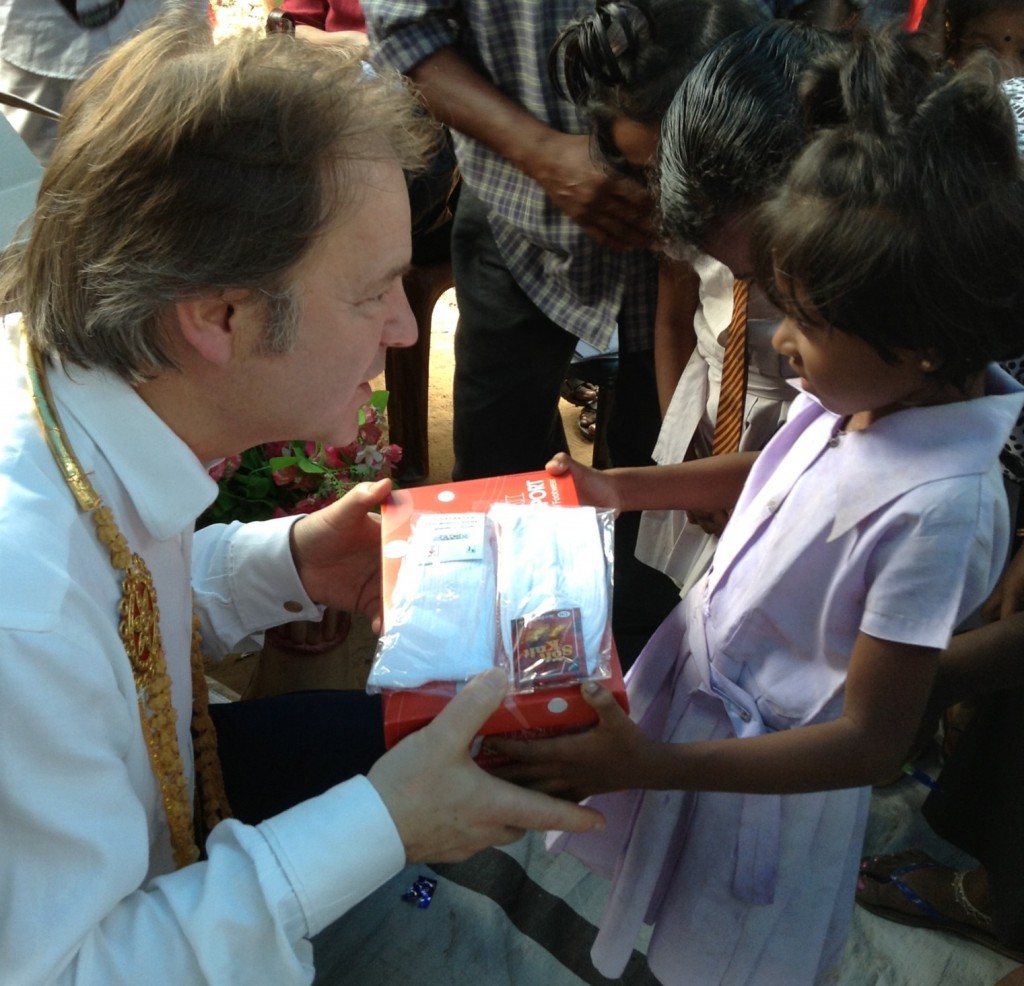7th October 2015 London, UK
Sri Lanka: talking about a resolution

For those of you who don’t know Sri Lanka, it’s a beautiful country – with world-class national parks, world heritage sites and pristine tropical beaches. But it is also haunted by a traumatic past, a devastating twenty-six year civil war between the Tamil Tigers and the government that ended in 2009.
Some of the stories from this war – many documented in painstaking detail by the media – are horrifying: rape, disappearances, torture, executions. To be clear, there were atrocities on both sides. And they cast a long shadow in communities right across Sri Lanka today.
Until very recently, Sri Lanka has been unwilling to address the legacy of this war. We know from our own experience that opening up old wounds can be painful; but experience also shows that allowing them to fester is even worse. And it is my firm belief – from the many discussions I’ve had with Sri Lankans since becoming a Minister in 2012 – that for the country to fulfil its enormous potential, it needs the catharsis that can only come from a proper process of accountability and reconciliation.
That is why, back in 2013, our Prime Minister was so determined that the United Nations should take action to kick-start this work, when it was clear that the Sri Lankan government of the day was unwilling to do so. I remember travelling to Geneva to lobby for the resolution at the Human Rights Council: it was hard work, with a good degree of opposition from countries close to President Rajapaksa and his administration. But we got there in the end. This mandated the UN to produce a report on the conflict, which they have now done. It makes for sobering reading.
Happily, a new government in Colombo has now taken an altogether more constructive approach to this process. When I went back to Geneva last month, to start to put together a new resolution setting out what should now happen to address the crimes laid out in the report, I was working with the Sri Lankan Foreign Minister, rather than against him. Sri Lanka ended up co-sponsoring the resolution, and firmly committed to implementing its recommendations. This is good for those who seek truth and justice, good for the rule of law, and good for the future of the people of Sri Lanka.
There will of course be those on the extremes of both sides who will be concerned either that this is not enough, or that it goes too far. It is only right that they are able to express their opinions and it is important that the government listens to all points of view as part of the wider consultations to which it has agreed. But now, as the country is beginning to take brave and important steps forward, it is above all vital that progress is not derailed.
I’m hopeful that the next stage of this process will be accompanied by further progress on some of the other commitments President Sirisena has made – from demilitarisation, to anti-corruption work, to the release of political prisoners, to reducing tensions between communities and disengaging the military from commercial activities. There is much to be done, and we in the UK are keen to offer support wherever we can. We’ll be discussing this with the Sri Lankan government in the coming weeks.
I remember one particular moment from my first trip to Sri Lanka, back in 2013. I met a number of families who had not seen relatives, in some cases, for years, and who had no idea whether they were dead or alive. The impact on their lives was of course tremendous. In some cases they wanted justice, but above all they wanted answers.
A two thousand word document negotiated five thousand miles away in Geneva can seem a long way from people’s lives on the ground. But every practical step the Sri Lankan government takes to implement the recommendations in this document will help to answer questions that have been left unanswered for too long.
1 comment on “Sri Lanka: talking about a resolution”
Comments are closed.